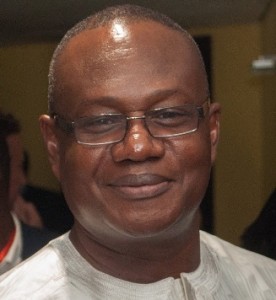Interior Minister advocates for terrorism prevention

Mr Prosper Bani, Minister of the Interior has called for the prevention of global terrorism as a productive path way of combating campaign.
He said globally organising resources for terrorism prevention was very difficult to come by, however, when there was terrorists attack anywhere, international development partners and donors were always quick to mobilise resources.
He explained that such resources would have rather been chanelled into terrorism prevention, since in the event of an attack, the damage and sometimes lost of human lives were irreplaceable.
Mr Bani made this remarks in Accra at the opening of two-day workshop on violent extremism in Africa.
The workshop is being organised jointly by the Kofi Annan International Peacekeeping Training Centre (KAIPTC) and the African Centre for the Study and Research on Terrorism (ACSRT/CAERT), with funding from the Spanish Government.
It aims to examine the incidence of violent extremism within local communities and to identify the common contributing factors, indicators, gaps and root causes in order to propose remedial courses of action.
Its objective is to provide an opportunity for the relevant government, civil society and local community actors to discuss the concepts of Violent Extremism and Human Security and share experiences and points of view.
It is being attended by 60 participants, drawn from governmental organisations, civil society organisations, academia, practicitioners, community leaders and religious leaders, counter-terrorism and counter violent extremism experts.
He said violent Extremism and Terrorism had been a growing canker in Africa with no region being exempted from it.
“Although these challenges have always been around, the observation is peacekeepers and national security agencies have increasingly had to deal with violent extremism and terrorism of which Ghana is no exception,” the Minister said.
He said Ghana was stepping up its preparedness to confront any act of terror.
Mr Bani said following the attacks on the Grand Bassam Beach Resort in Cote d’Ivoire and those at the Cappuccino restaurant and the Splendid Hotel in Burkina Faso, Ghana had strengthened and enhanced its security systems in anticipation of any such attacks.
He said in order to combat terrorism, there was the need for inter-country collaboration and constant flow of information.
He said the outcome of this workshop would contribute to the counterterrorism objectives of the AU, pursuant to the OAU Convention (1999) on the Prevention and Combating of Terrorism, its Plan of Action (2002) and its Protocol (2004), which fit into the spirit of United National Security council.
He reaffirmed Ghana’s commitment to countering violent extremism and support for this process.
Air Vice Marshal Griffiths Evans, the Commandant of the KAIPTC, said “there is no doubt that violent extremism continues to pose daunting security challenges, not only to the United Nations Security Council, but also undermines continental, regional and national peace and security”.
“Security mechanisms of the African Union and the ECOWAS are increasingly being challenged by the threat of violent extremism,” he added.
He said recent study had identified more than 40 different extremist groups in Africa with the most prominent ones being: Boko Haram found in – Nigeria, Chad, Cameroun, an Niger: Al-Qaeda in the Islamic Magreb (AQIM) – mainly across Mali and the Sahel Region: Lords Resistant Army (LRA) also found in Northern Uganda, South Sudan, the Central African Republic and the Democratic Republic of Congo, while Al-Shabab continues to operate in countries such as Somalia, Kenya and Ethiopia.
He said it was against this background that the KAIPTC and the ACSRT/CAERT deemed it important and timely to organise the workshop.
Lieutenant Colonel Larry Gbevlo-Lartey, the AU Special Representative in-charge of Counter-Terrorism Cooperation and Director of ACSRT, expressed gratitude to the Spanish Government for sponsoring the workshop.
He said the democratic and peaceful nature of Ghana would serve as a case study for others to learn from.
He said extremism did not exist in vacuum, and therefore, there was the need to trace the root causes.
Source: GNA
